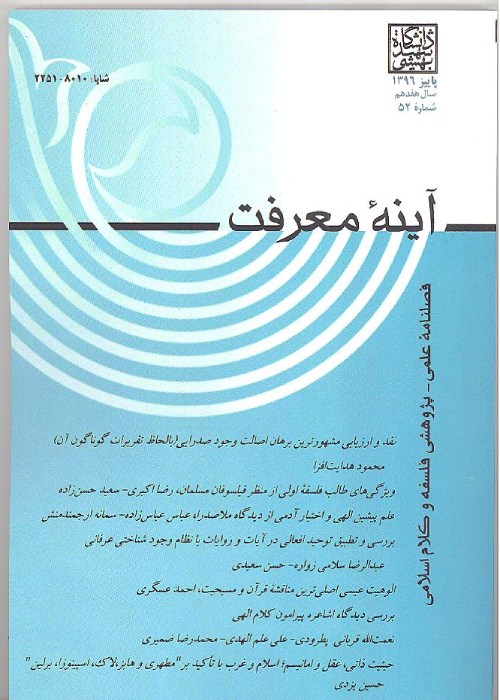The Student's Beliefs in Liberalism: Reasons and Consequences
Author(s):
Abstract:
The western civilization is based on the epistemological and intellectual developments in secularism, humanism and liberalism as well as the use of scientific methods of acquiring knowledge. It has persisted through the establishment of relevant social structures and institutions as the dominant civilization. Based on its worldview and its definition of the ‘perfect human being’ consistent with its worldview, the western civilization has succeeded to establish an efficient social system which can be considered the outcome of the social order resulted from that consistency. Due to this success, some other societies with completely different ontological assumptions, especially through university education, willingly or unwillingly have taken the same route, yet they are facing the problem of underdevelopment based on western standards and indicators of course. In some cases they have encountered social disorders which have probably been caused by the inconsistency between the social structures and the philosophical principles of those societies. Without being intended to criticize the principles of western civilization, the present article is __________________________ Shahid Beheshti University dp206pd@yahoo.comaimed at investigating the degree of students’ belief in liberalism compared with Islamic beliefs. The results, based on a survey of 1470 students from the top five universities in Tehran, show that 5.9% of the respondents at an extremely large extent, 15.5% at a very large extent, 25.4% at a large extent, 22.1% at a small extent, 20.9% at a very small extent and 10.2% at an extremely small extent believe in liberalism. The degree of belief in liberalism on average is 3.2 out of 6 with the standard deviation of 1.48 which is between a small extent and a large extent. The results also reveal that the higher the degree of belief in liberalism the less is the belief in work ethics, commitment towards the revolution, social commitment, social trust, and the preference of Islamic identity to national identity. On the other hand, the level of individualism, utilitarianism and the preference of national identity to Islamic identity is at a higher level among the participants. Also an increase in the degree of belief in liberalism correlates with a decrease in scientific success, scientific efficiency, socialization for other roles, creativity, human development, and finally scientific development index. All the results of the analysis of data collected from the sample are statistically significant and can be generalized to the whole population.
Language:
Persian
Published:
Ayeneh Marefat, Volume:8 Issue: 22, 2010
Page:
145
magiran.com/p920673
دانلود و مطالعه متن این مقاله با یکی از روشهای زیر امکان پذیر است:
اشتراک شخصی
با عضویت و پرداخت آنلاین حق اشتراک یکساله به مبلغ 1,390,000ريال میتوانید 70 عنوان مطلب دانلود کنید!
اشتراک سازمانی
به کتابخانه دانشگاه یا محل کار خود پیشنهاد کنید تا اشتراک سازمانی این پایگاه را برای دسترسی نامحدود همه کاربران به متن مطالب تهیه نمایند!
توجه!
- حق عضویت دریافتی صرف حمایت از نشریات عضو و نگهداری، تکمیل و توسعه مگیران میشود.
- پرداخت حق اشتراک و دانلود مقالات اجازه بازنشر آن در سایر رسانههای چاپی و دیجیتال را به کاربر نمیدهد.
In order to view content subscription is required
Personal subscription
Subscribe magiran.com for 70 € euros via PayPal and download 70 articles during a year.
Organization subscription
Please contact us to subscribe your university or library for unlimited access!


